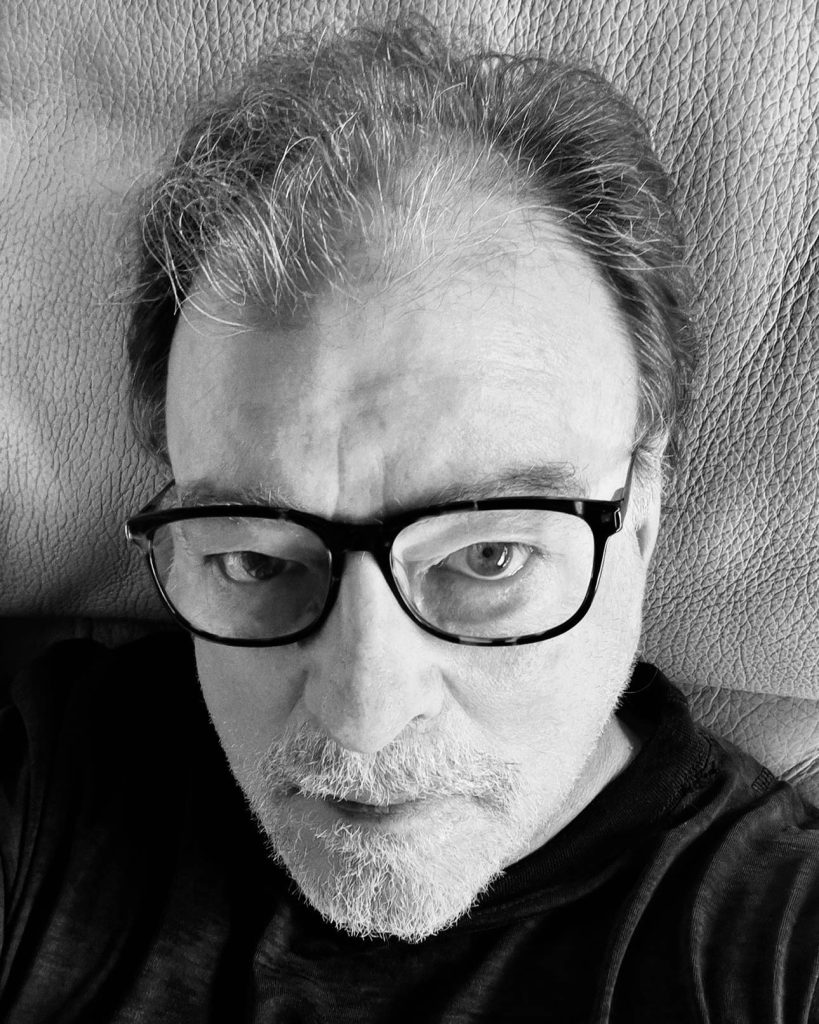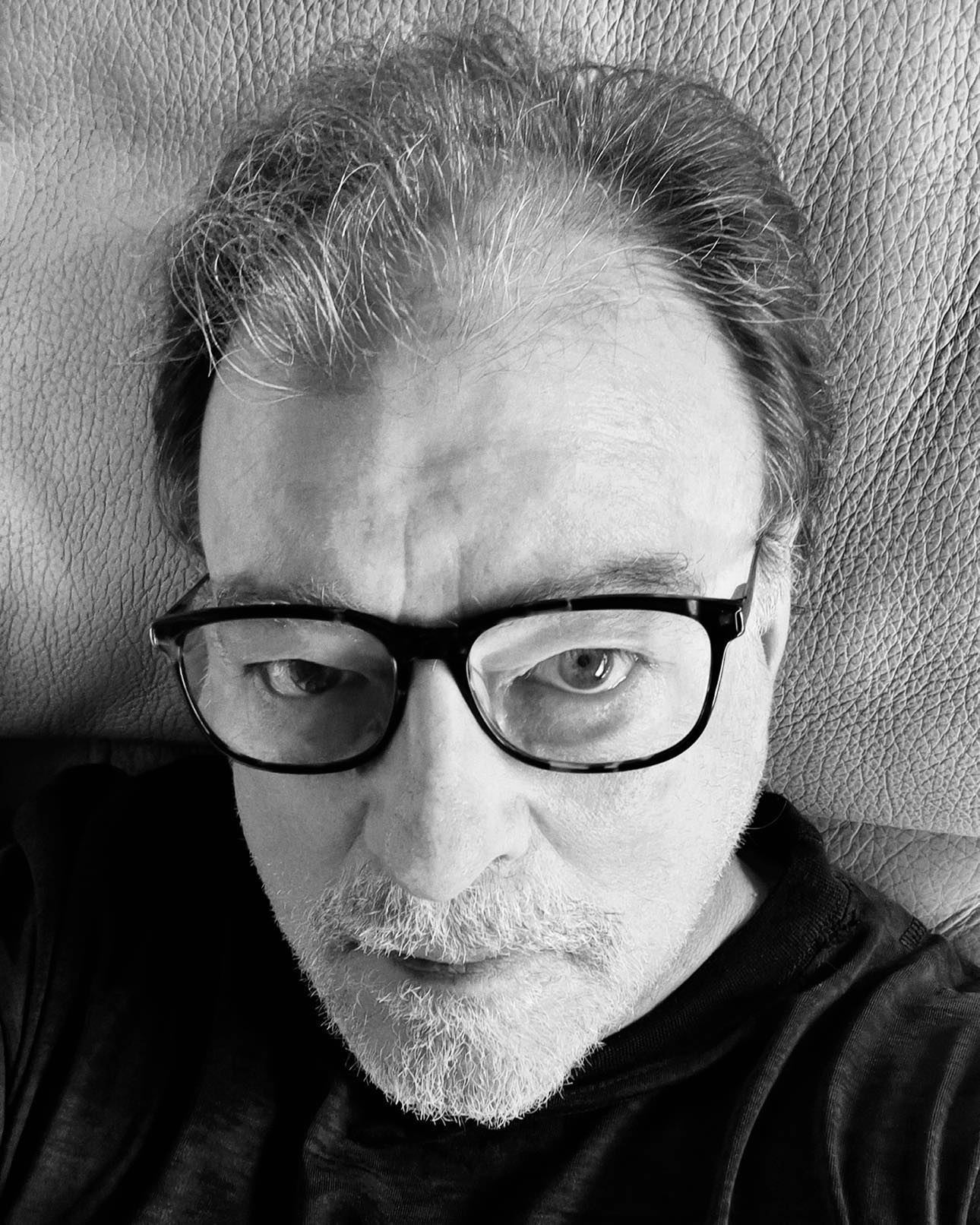
-Who is Robert Scott MacLeay?
I am a Canadian new media artist (photography and video) / composer / writer, who lived and worked in Paris for 30 years before moving to Florianópolis, Brazil in 2010. My formal education was in the social sciences and I have an Msc. in Economics from the London School of Economics and Political Science (LSE). I left my doctoral studies to pursue a career in photography in Vancouver, Canada in the mid-70s and decided to dedicate myself exclusively to my exhibition work when I moved to Paris in 1979. In the 80s, thanks to good gallery representation in New York and Paris and multiple participations in the biennial Paris Month of Photography (1980, 1982, 1988), I was able to exhibit my work widely in Europe, N. America and Japan. I left the analog photographic world in the late 80s to devote myself full time to composing music for video art, contemporary dance and my group Private Circus. I had always composed music on a part-time basis since moving to Paris, but my frustrations with the limitations of analog photography led me to explore the world of digital music on a full-time basis, an activity that enhanced my later interest in digital imagery, filmmaking and online technologies. When the quality of digital applications in the visual arts had begun to catch up to those in the audio universe in the period between 2003 and 2008, I began to apply many of the processes I had developed in my musical composition and sound designing work to digital image-making based on combinations of photography and the graphic arts.
By the time I arrived in Brazil, I was dividing my time between research and exploration in digital photography, video and music, all in the service of creating new media pieces. Over the past seven years I have grown increasingly interested in exploring and developing interactivity in both my online and video projects, devoting the majority of my time to experimental video work. Throughout my 45 years as an artist, my formation in the social sciences continued to be an important influence on the manner in which I develop and evolve the conceptual processes underlying my work.
-What inspired you to become a Filmmaker?
Upon arriving in Paris, I quickly realized that I needed to find a way in which to assure a relatively steady flow of income to finance my photographic exhibition work. I was offered the opportunity to create the Photography Department at the American Centre for Artists in Paris, an avant-garde independent cultural institution that was famous for introducing American video art to French audiences as well as for its work in the field of modern dance and music with its affiliations with the Merce Cunningham Dance Company and John Cage. The video activities at the American Center were initiated by Don Foresta who was Director of its Center for Media Art. Don regularly organized presentations, workshops and encounters with some of the most influential video artists of the day including Woody and Steina Vasulka, Nam June Paik and William Wegman as well as exciting newcomers like Bill Viola, Gary Hill and Joan Logue among others. I attended all the presentations and began to develop a deeper understanding of the power of video art and its relationship to experimental film. During my first year of teaching at the Center I was asked to participate in the first transatlantic transfer of an image over a telephone line via slow scan between the American Center in Paris and Center for Advanced Visual Studies at M.I.T. In 1981 this constituted a veritable technological adventure and I found the experience profoundly inspiring.
Anne Marie Stein succeeded Don Foresta as Director of the Center for Media Art and invited me to make my first experimental videos in 1983. When in 1984 she and her husband decided to move back to the USA, she recommended that I be named director of a new entity that would combine my now successful photography department with the center’s video activities. The Center for Media art and Photography (CMAP) was born. I remained Director of the CMAP until I left the Center in 1987 to begin pursuing my musical composition work full time, with a particular emphasis on music for video art works where I had the privilege of collaborating with many very talented French video artists.
My innumerable encounters with remarkable artists that characterized my life in the 1980s cemented my belief in the importance of video art as a means of expressing what we think and feel about more intangible subject matter as opposed to focusing on what we see in the world around us. I became passionately interested in non-linear narratives in both video and photography, a passion that continues today.
-Do you think the cinema can bring a change in the society?
Change is a very complex process and profound change requires a number of powerful ongoing influences operating simultaneously and in harmony over rather long stretches of time. So, if I am honest, I do not believe that cinema alone can bring a change to society, although it is very capable of inspiring reflection on a change in progress. I think that the invention of filmmaking and the development of cinemas in the early 20th century did bring about a certain change, not because of its content, but because the nature of the medium itself represented a societal change, just as television did in the 1960s. As Marshall McLuhan wrote with respect to television “the medium is the message”. Cinemas in the early 20th century represented a new form of social gathering, one in which individuals did not communicate with each other during the event – a strange new form of atomized social gathering, a form that has been taken to new heights with the invention of the cellphone where groups of people can be seen in social settings, each individual glued to their cellphone screen.
I do however believe that cinema, whether commercial or as a more abstract art form, does represent a powerful tool for raising questions and awareness about highly relevant questions and as such, is capable of making contributions to the groundwork necessary for profound change in many areas of society. Because commercial cinema has the potential to reach vast audiences worldwide, I think that perhaps it has the power in certain cases to incite a certain degree of reflection on a societal level. This is not true of the type of experimental work I create. My work is, by definition, more confidential. It is reserved for gallery and museum exhibitions and specialized festivals and as such, has significantly less power at a societal level. Instead, its power is that of touching a small number of individuals interested in more abstract philosophical topics. I make my work for myself, to express thoughts and feelings on topics such as doubt, ambiguity, chance and interpersonal messaging. I believe that much of my work is a mirror in which people can catch a glimpse of themselves in a different light, one that provokes reflection and often, a sense of discomfort. My work may not be able to change the world but I believe it has the power to change the way individuals see themselves, one by one. This, to me, already constitutes a relevant achievement.
-What would you change in the world?
The things I would like to change have to do with both individual and social relationships. For example, I would like to see an end to the ravages of world poverty and more emphasis placed on constructing genuine equality of opportunity and universal access to high quality public healthcare, education and local transportation worldwide. I would like to see an end to bigotry in all its forms. I would like to see a world in which children have the time to be children before we begin to pressure them into becoming what we adults think they ought to be in the future. I would like to see a world in which formal education devoted much more time to creative analytical thinking and culture and spent less time emphasizing memorization. Lastly, I would like to see countries place less emphasis on promoting nationalism and more on developing understanding and respect for the traditions and perspectives of other nations.
So, as you can see, the list is an ambitious one … but you asked.
-Where do you see the film industry going in the next 100 years?
That is an almost impossible question to answer. Imagine if you had asked that same question to a filmmaker in 1924? However, there are perhaps trends opening up that suggest pathways to future film industry characteristics.
Firstly, I believe there will be a strong push towards more independent filmmaking that involves both feature films as well as more experimental works. I believe that cinemas as we know them today will continue to have difficulties in drawing audiences if they cannot provide more technologically interesting experiences and do not strive to offer a more varied selection of types of work. I believe that this may be made possible by ongoing technological developments in the art of filmmaking that make the cinema experience a more immersive one capable of transporting the audience to entirely new environments. This may require rethinking of what constitutes a cinema. Will it continue to be a dark room with rows of seats or a more open concept with multiple projections and points of interest? In any case, I feel that in order to survive, the cinema experience will have to undergo changes that enable it to create and provide audio visual experiences very different from those which potential spectators can now enjoy daily in their own homes with their large screens and surround sound installations.
Lastly, on a more general level, I believe that the notion of interactivity will play an increasingly important role in the evolution of filmmaking of all types. If innovation was the concept driving progress in almost all areas during the 20th century, I believe that the concept of interactivity will play a similar role in the 21st century. This implies a more active role for the spectator when compared to their passive consumer profile of the 20th century. This may oblige the film industry to focus much more on the development of sophisticated home-based interactive streaming experiences not unlike perhaps those being developed in the gaming / RPG universe.
In any case, the transmedia aspect of the film industry which began developing 20 years ago will undoubtedly continue to evolve, exploiting new platforms and formats of communication, both online and off, designed to take the cinephile experience to new heights.

